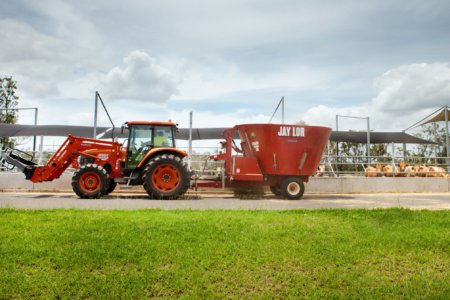
Agriculture is a vital sector poised for advancements and disruptions in an era defined by rapidly evolving global challenges. The United Nations predicts that by 2050, the global population could reach 9.7 billion people. This means more people will need access to essentials like food, water, and resources. Yet, in 2023, over 345 million people are grappling with severe food insecurity, more than double the numbers from 2020.
Those with advanced knowledge, skills and experience at the intersection of agriculture and various related disciplines can make a difference in this changing world. They are the linchpins in ensuring the survival of humanity and working towards ambitious goals such as ending extreme poverty and fostering shared prosperity.
If this is something that interests you, here are three universities offering strong programmes that can advance your career in this dynamic field:
Mississippi State University
From the heart of America’s agricultural epicentre, Mississippi State University (MSU) offers a Master of Agribusiness Management (MABM) programme that equips you with the necessary tools to set yourself apart from the competition, impress employers, and get a good job. With a curriculum tailored to individual needs, AACSB accreditation, flexible learning options, and recognition by Pinion — the US’s largest food and ag consulting and accounting firm — the MABM is set to achieve just that and more. It starts with a personalised advising session, dedicating an average of 45 minutes to understanding your goals and crafting a course of study that aligns with your ambitions.
For those who prefer an immersive, accelerated experience, the on-campus MABM is delivered in a traditional, face-to-face learning environment. You will grasp the intricacies of the agribusiness world under the guidance of professors with real-world experience. The online programme is ideal for full-time professionals with career and life commitments. What sets it apart from other programmes is the MABM requires no campus visits. The focus is to accommodate your busy life, offering you the freedom to advance your career without putting anything on hold. The best part? All online instructors are certified in best practices for online instruction.
The MABM programme also stands out as a specialised agribusiness masterpiece. MSU offers a comprehensive education tailored to the agricultural sector, combining agricultural economics with core MBA courses and content in accounting, finance, marketing, data analytics, and more — resulting in well-rounded agribusiness professionals. MSU’s Online MBA was ranked #1 in 2020 by Best Value Schools.
With such features, you’re set to be another example in the MABM’s 100% job placement rate success story. The programme culminates with a capstone project, where you’ll demonstrate your ability to apply concepts learned during the programme. No thesis is required, but this project will showcase your readiness to tackle real-world challenges in agribusiness. Click here to learn more about the programme.
University of Maryland, College Park
A global leader in research, entrepreneurship and innovation, the University of Maryland, College Park is home to more than 40,700 students, 14,000 faculty and staff, and nearly 400,000 alumni dedicated to pursuing Fearless Ideas. Nestled just outside Washington, D.C., the university aims to educate students and advance knowledge in areas of importance to the state, the nation, and the world.
The College of Agriculture & Natural Resources (AGNR) of the University of Maryland, College Park, offers programmes designed to solve some of the world’s most immediate and relevant challenges. Founded in 1856, AGNR is the cornerstone of the University of Maryland system, built upon sound science, groundbreaking research, and Maryland pride.
The various programmes here include Agricultural & Resource Economics, Animal Science, Entomology, Environmental Science & Technology, Landscape Architecture, Nutrition & Food Science, Plant Science, Veterinary Medicine and more. The best part? Graduate students can participate in groundbreaking research alongside some of the most brilliant faculty members from diverse corners of the globe.
For students eager to engage in undergraduate research, AGNR provides a diverse range of interdisciplinary research opportunities. Plus, there is a gateway to graduate education through the Summer Opportunities in Agricultural Research and the Environment (SOARE), formerly known as SROP. This programme is a collaborative partnership between the AGNR Academic Programs and the UMD Graduate School.
SROP students spend eight weeks at UMD working 40 hours per week with AGNR faculty on research. They attend weekly seminars and present findings in a special research forum. It offers insight into grad school culture and expectations.
Oregon State University
The College of Agricultural Sciences at Oregon State University is a leader in the study of natural resources, life sciences, environmental quality, and rural economies. A fundamental part of the university’s land-grant mission, the college is focused on creating knowledge to solve problems and discover new opportunities for the future.
Ranked the #2 agricultural college in the US by universities.com, the College of Agricultural Sciences provides diverse academic experiences coupled with opportunities to pursue transdisciplinary research and education led by nationally renowned faculty.
Its postgraduate lineup consists of programmes in Animal Sciences, Applied Economics, Botany and Plant Pathology, Crop Science, Entomology, Fisheries Management, Food Science and Technology, Horticulture, Microbiology, Organic Agriculture, Toxicology, Wildlife Management, and more.
“The density of Oregon’s diverse agricultural, environmental, and social landscape is unmatched. From our vibrant coastal communities to our high desert ecosystems, more than 531,000 jobs are associated with the agriculture, food and fiber industry in Oregon with an overall economic impact from the food system of US$42 billion,” says Staci L. Simonich, Dean and Reub Long Professor.
“Striking a careful balance between conservation and production, we equip future leaders to solve complex challenges as we partner with industries and communities in our tireless commitment to making tomorrow better for everyone.”
*Some of the institutions featured in this article are commercial partners of Study International









